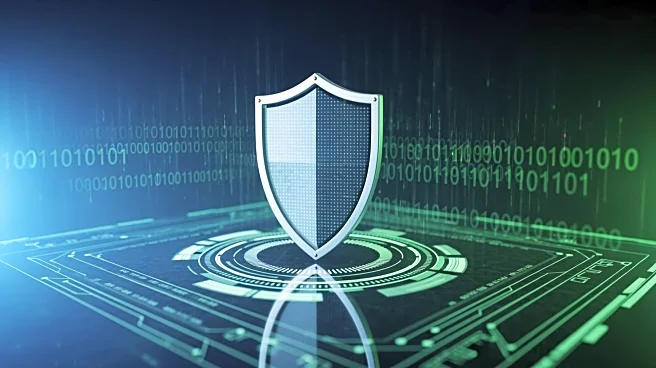What's Happening?
Japanese companies are experiencing a surge in cyberattacks, particularly ransomware, which has exposed vulnerabilities in their digital defenses. In recent incidents, Asahi Group Holdings Ltd. had to take its distribution system offline due to a ransomware attack,
while retailers using Askul Corp. lost access to e-commerce platforms. The rise in attacks is attributed to increased remote work, cryptocurrency use, and artificial intelligence, which facilitate communication between hackers and victims. The Tokyo Metropolitan Police Department reported 116 ransomware cases in the first half of the year, matching a previous record. Experts note that Japan's slower adoption of digital workflows and limited English proficiency have historically shielded it from such attacks, but this is changing as companies become more lucrative targets.
Why It's Important?
The increase in cyberattacks on Japanese companies highlights a growing threat to global supply chains and business operations. As Japan is a major player in international trade, disruptions in its corporate sector could have ripple effects on global markets. The attacks underscore the need for improved cybersecurity measures and the integration of IT into corporate strategies. With only 46% of Japanese companies having a chief information security officer, compared to a global average of 70%, there is a significant gap in cybersecurity leadership. This situation presents both a challenge and an opportunity for cybersecurity firms and policymakers to enhance digital defenses and protect economic interests.
What's Next?
As cyberattacks continue to rise, Japanese companies may need to invest more in cybersecurity infrastructure and expertise. This could involve appointing more chief information security officers and integrating IT into corporate strategies. The government and private sector might collaborate to develop stronger cybersecurity policies and frameworks. Additionally, there could be increased demand for cybersecurity services, creating opportunities for firms specializing in digital security. The situation may also prompt international cooperation to address the global nature of cyber threats.
Beyond the Headlines
The surge in cyberattacks on Japanese companies could lead to a cultural shift in how businesses approach digital security. Historically, Japan's corporate culture has been slow to adapt to digital changes, but the increasing threat may force a reevaluation of priorities. This could result in a more proactive stance on cybersecurity, influencing other sectors and regions facing similar challenges. The situation also raises ethical questions about the responsibility of companies to protect customer data and the potential consequences of failing to do so.















